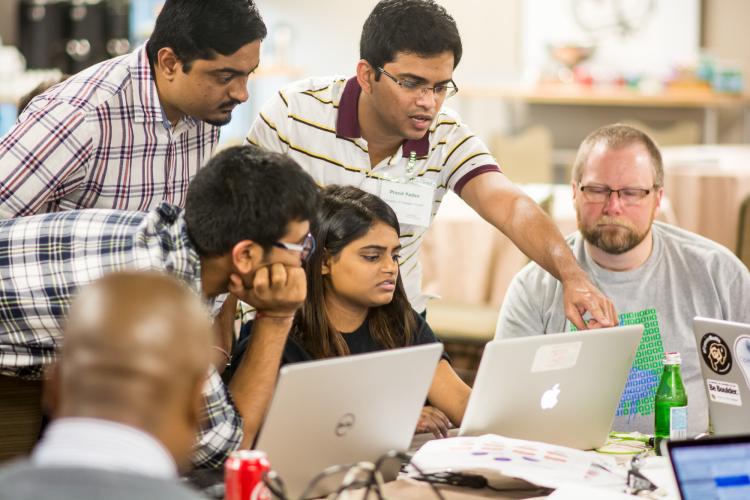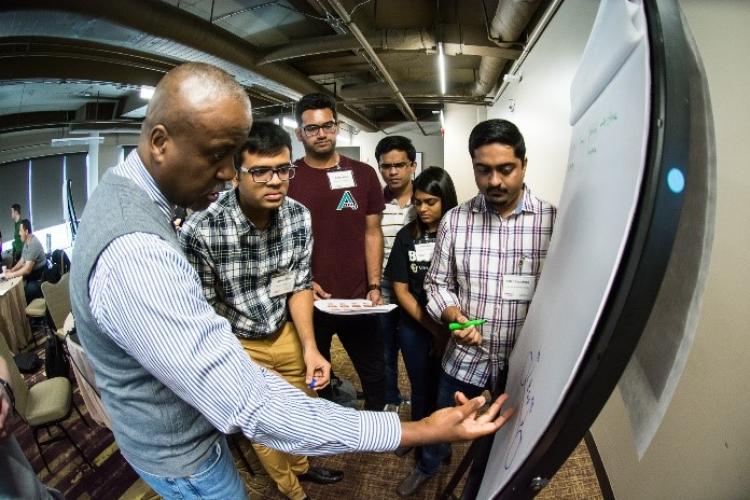ITP team places first in NANOG hackathon

Photos courtesy of NANOG.
Students enrolled in CU Boulder’s Interdisciplinary Telecom Program attended NANOG 72 in Atlanta, Ga., on Feb. 19-21, where they placed first in the event’s hackathon. The hackathon focused on the development of solutions for network configuration and management, providing an opportunity for teams of engineers and students to hone their software development skills and address ways to more effectively manage large-scale networks.
The team included Arohi Gupta, Soham Dhiren Shah, Pranit Sanjay Yadav, Amar Chaudhari and Aditya Ahuja.
Founded in 1994, the North American Network Operators’ Group is a community-driven organization composed of representatives from companies that manage, administer and build the networks that collectively form the Internet. Network engineers from prominent Internet companies such as Netflix, Google, Facebook and Amazon frequently attend NANOG’s biannual conference to share and discuss new technologies and best practices that can improve the overall functionality of the Internet.
In 2013, in an effort to improve collaboration between industry and academia, NANOG’s program committee invited students from CU’s ITP program to attend NANOG. ITP was the first university program invited to attend, and its students have been attending the events since, often presenting before attendees on topics related to advanced network engineering principles.
"ITP’s curriculum is very hands-on oriented, providing students with exposure to the latest networking technologies within real-world lab environments hosted either on campus at CU Boulder or remotely accessible to students who are working with advisors from industry," said Kevin Epperson, an ITP alumnus who is now director of infrastructure strategy at Netflix and a faculty lecturer for ITP. “It’s the access to the latest technologies and hands-on nature of ITP’s curriculum that makes our students so well-versed on advanced network engineering principles - and why ITP students are highly sought-after within the digital workforce.”
The one-day hackathon at NANOG 72 was sponsored by Oracle and hosted five teams of engineers and students from various companies and universities, all of whom were tasked with conceptualizing and designing a solution related to network configuration management and deployment. Within large-scale network environments, such as those operated by Google or Amazon, the ability to automatically configure network connections is becoming increasingly important given the vast number of routers, switches and servers. As a result, network engineering and software engineering are becoming increasingly intertwined.

Such courses and internship experiences aided ITP students at NANOG 72’s hackathon, where second-year ITP students teamed up with co-participants from Internet2 and Netelysis to conceptualize and design a NAPALM-based network management platform. The creation of the platform leveraged students’ hands-on experience with networking technologies and coding with Python. For companies that operate vast network computing systems, the platform created by ITP students enables network engineers to quickly and easily debug bad network configuration links between routers and switches, a particularly time-consuming task when operating networking environments with tens of thousands of network computing systems.
Jeff Hannah is the corporate outreach manager for the Interdisciplinary Telecom Program.

